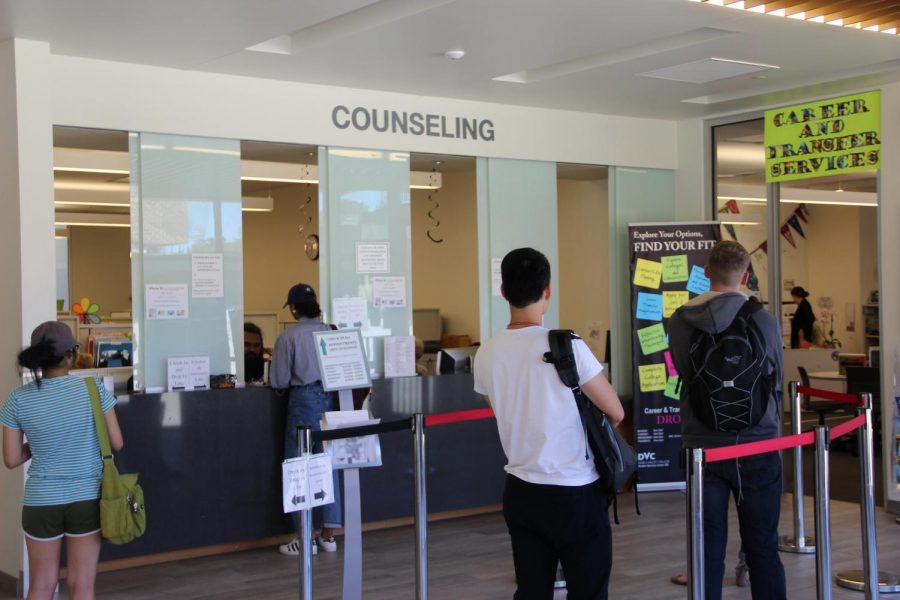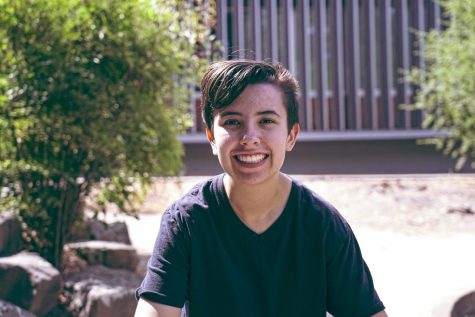Student Survival Guide: Mental health services on campus
Students can be given outside resources by counseling for mental health assistance. (The Inquirer stock photo).
October 17, 2019
More than two in five Diablo Valley College students cited “anxiety, stress, post-traumatic stress, or other emotional issues” as their biggest obstacle to success in college, according to the 2019 Community College Survey of Student Engagement. But while staff are available for counseling at both DVC campuses, many students remain unaware of the service.
Not only that, most students view the counseling department to be focused more on academics than counseling for personal issues. For Sade Creel, a 22-year-old communications major, this perception was validated through her appointments with Umoja, an African-American learning community on campus.
“(My sessions) refer back to school in a certain way,” said Creel. “They do not refer to school when I am mentally distressed because this is the main reason why I am distressed.”
Creel said she’d like to see counselors ask questions about how students are feeling and how they can help, instead of strictly focusing on academics. While it makes sense that counselors check on students’ academic performance during appointments, she said, for someone struggling emotionally, academics aren’t the priority.
A 2018 survey from the American College Health Association found that three out of five college students experienced overwhelming anxiety, while two out of five students “felt so depressed that it was difficult to function.” Students like Kiana Stewart, a 19-year-old business major, said DVC needs counselors who focus on mental health to help students through these issues.
Christie Harrington-Tsai, DVC’s general and mental health counselor, said there are already a few ways students can access mental health services on campus.
“Any student who’s in crisis or just needs to talk to someone in that moment can always come to the counseling center and say, ‘I just need to talk to a counselor about personal stuff going on,” said Harrington-Tsai.
Students can also specify the counselor they’d prefer to talk to, or general characteristics they’re seeking such as the counselor’s race or gender. These requests get treated as high priority, said Harrington-Tsai, and are usually dealt with immediately.
Faculty and peers can also refer students to the counseling department, and counselors can then connect students to outside resources if needed.
For brief therapy, both DVC campuses offer free wellness counseling. Trainees and interns from JFK University and the Rainbow Counseling Center offer five free sessions to students, after which students can get connected with outside community resources.
According to Harrington-Tsai, for on-going crisis situations, the goal is to connect students with long-term resources and get them the help they need.
“Counseling wants to support students and be there for them.”
Editor’s Note: If you or someone you care about are struggling, please consider the following resources:
Community referral services, call 211 or visit https://www.crisis-center.org/
Crisis assistance: text 741-741
National Suicide Hotline: 1-800-273-8255







































































